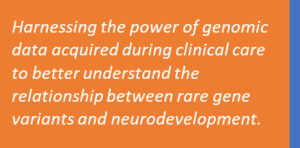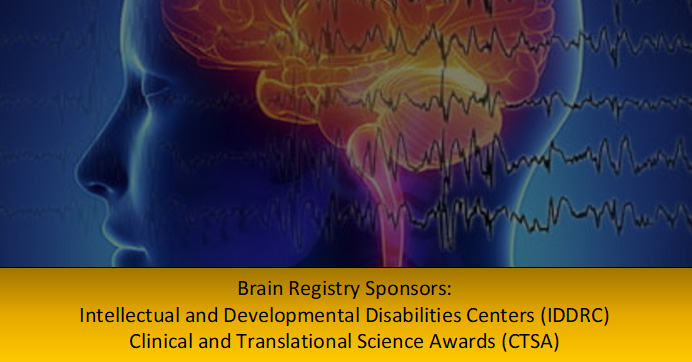The IDDRC-CTSA Brain Gene Registry
Boston Children’s Hospital has taken a lead role, together with Washington University and the University of North Carolina, in launching the new IDDRC-CTSA Brain Gene Registry. This national project, encompassing 13 Intellectual and Developmental Disabilities Centers (IDDRC) sites, under the leadership of Principal Investigator Dr. John Constantino at Washington University, will harness the power of genomic data acquired during clinical care to better understand the relationship between rare gene variants and neurodevelopment.
 Initial Genes of Interest
Initial Genes of Interest
The Boston Children’s Hospital IDDRC Clinical Translational core, led by Dr. Mustafa Sahin, serves as the clinical coordinating center and provides genomic expertise for the project. The BCH team has led the selection of the 55 genes of interest, in close collaboration with ClinGen and the participating sites, and established a framework for future gene nominations for inclusion into the registry. Individuals with variants classified as pathogenic, likely pathogenic or variants of uncertain significance in these genes of interest will be invited to participate.
Participants
This highly collaborative initiative will recruit participants, from across all medical specialties and across the 13 IDDRC sites. Consenting participants will undergo a standardized virtual neurocognitive assessment battery, the results of which will be co-registered with genetic results, previous neurocognitive assessment reports, and electronic health record data in a centralized registry. In parallel, all subjects will enroll in GenomeConnect, the ClinGen Patient registry, and the data from this source will merge with the IDDRC-CTSA Brain Gene Registry.
New ClinGen-BGR Intellectual Disabilities/Autism Gene Curation Expert Panel (GCEP)
Nominated experts and biocurators spanning many fields, including genetics, medical, academia, and industry, have formed a new ClinGen ID/Autism Gene Curation Expert Panel (GCEP) team to accelerate the systematic evaluation of genes that are thought to have a role in neurodevelopment. The Panel is chaired by Dr. Maya Chopra, the BGR Genomic Medicine Lead at Boston Children’s Hospital.
The GCEP will utilize the existing ClinGen framework for determining gene-disease validity, in other words, the strength of evidence that a gene is involved in a disease, in this case Intellectual Disabilities/autism. The availability of systematically collected genomic and phenotypic data from the IDDRC-CTSA Brain Gene Registry will enrich this process.
Harnessing Science to Improve Lives
With this approach, we are leveraging the power of clinically acquired genomic data together with standardized phenotypic information and medical records, for the purposes of advanced gene curation. This promising project will advance our knowledge of the relationship between rare gene variants and neurodevelopment, an essential step as we move towards understanding mechanisms and developing therapies for intellectual disability and autism.
For more information on the IDDRC-CTSA Brain Gene Registry, please visit https://sites.wustl.edu/braingeneregistry/.
Learn more about IDDRC’s Clinical Translational Core.



